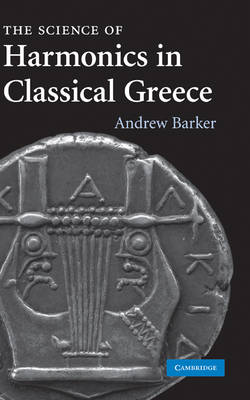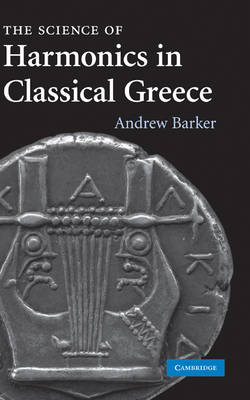
- Afhalen na 1 uur in een winkel met voorraad
- Gratis thuislevering in België vanaf € 30
- Ruim aanbod met 7 miljoen producten
- Afhalen na 1 uur in een winkel met voorraad
- Gratis thuislevering in België vanaf € 30
- Ruim aanbod met 7 miljoen producten
Zoeken
€ 236,45
+ 472 punten
Uitvoering
Omschrijving
The ancient science of harmonics investigates the arrangements of pitched sounds which form the basis of musical melody, and the principles which govern them. It was the most important branch of Greek musical theory, studied by philosophers, mathematicians and astronomers as well as by musical specialists. This 2007 book examines its development during the period when its central ideas and rival schools of thought were established, laying the foundations for the speculations of later antiquity, the Middle Ages and the Renaissance. It concentrates particularly on the theorists' methods and purposes and the controversies that their various approaches to the subject provoked. It also seeks to locate the discipline within the broader cultural environment of the period; and it investigates, sometimes with surprising results, the ways in which the theorists' work draws on and in some cases influences that of philosophers and other intellectuals.
Specificaties
Betrokkenen
- Auteur(s):
- Uitgeverij:
Inhoud
- Aantal bladzijden:
- 494
- Taal:
- Engels
Eigenschappen
- Productcode (EAN):
- 9780521879514
- Verschijningsdatum:
- 13/09/2007
- Uitvoering:
- Hardcover
- Formaat:
- Genaaid
- Afmetingen:
- 160 mm x 229 mm
- Gewicht:
- 907 g

Alleen bij Standaard Boekhandel
+ 472 punten op je klantenkaart van Standaard Boekhandel
Beoordelingen
We publiceren alleen reviews die voldoen aan de voorwaarden voor reviews. Bekijk onze voorwaarden voor reviews.








